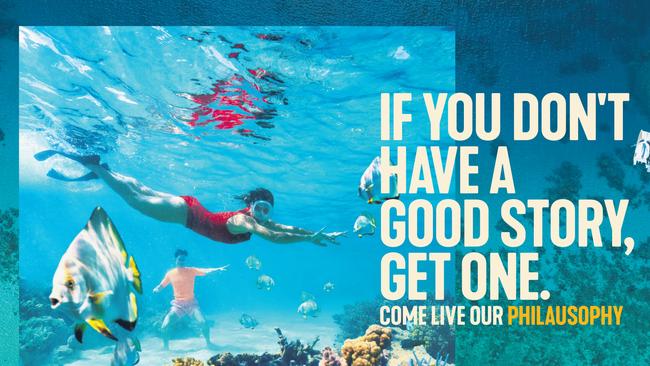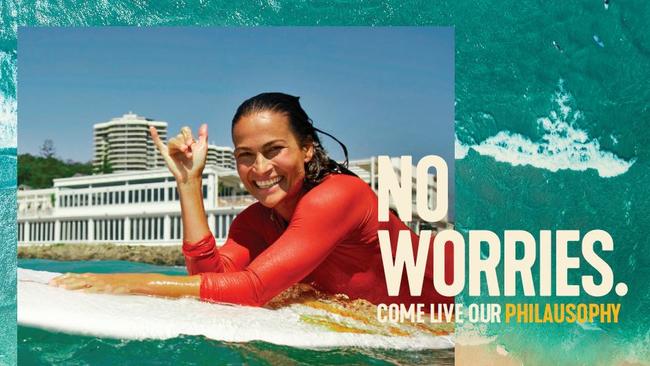What the bloody hell is the new tourism campaign?
Australia’s most famous shark attack survivor is set to pop up in a major campaign — a day after the latest drama in the Whitsundays.
QLD News
Don't miss out on the headlines from QLD News. Followed categories will be added to My News.
THE timing couldn’t be worse.
Tourism Australia is today set to launch a major new campaign featuring Queensland’s reefs, beaches and rainforests front and centre across billboards, TV ads and social media plastered from the US to Singapore, China, India, Europe and more.
Tourism numbers surging in Queensland
State’s Outback hits visitor milestone
Following the fifth Whitsundays shark attack in just over a year, surfing legend Mick Fanning — himself a shark attack survivor following an incident in South Africa in 2015 — and wildlife warrior Terri Irwin will be the new Australian philosophers selling the larrikin lifestyle to the world, as part of the next big bid to lure international tourists to our shores.

While Monty Python would have you believe Australian philosophy is centred around the raising of the wrist, it’s our no-worries attitude, sense of adventure and mateship that will be in the spotlight. Tourism Australia’s “PhilAUSophy” campaign to be unveiled today seeks to cash in on big-spending travellers seeing Australians as having a different perspective on life.
But in a case of awkward timing, the campaign reveal is taking place the day after two British backpackers were mauled at Airlie Beach.
International tourism is worth $6 billion a year to Queensland as 2.7 million visitors come to the state.

Federal Tourism Minister Simon Birmingham said Queensland would be highlighted in the global campaign.
“The Reef, Gold Coast and Mossman Gorge will take centre stage in Tourism Australia’s newest campaigns as we bring to life some of the state’s iconic tourism offerings in a bid to lure more travellers to Queensland,” he said.
According to market research conducted for Tourism Australia, 70 per cent of travellers believe Australians have a different view on life and almost 80 per cent thought the people were an important part of the Australian lifestyle.


